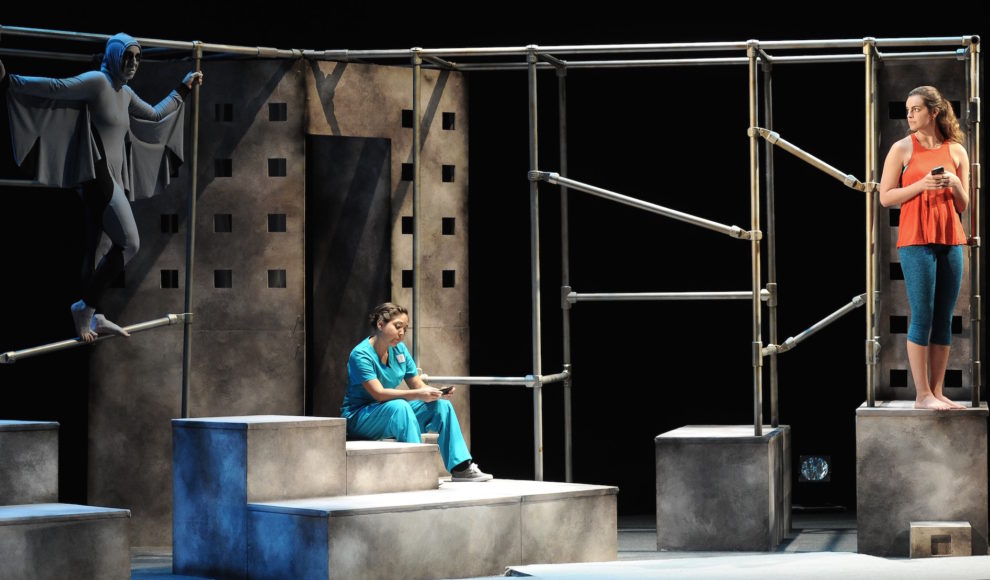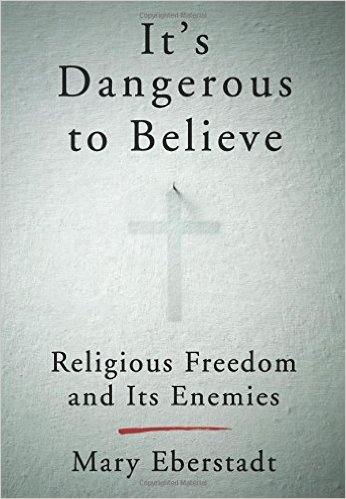When Bob Royal started The Catholic Thing several years back (with the merry band of Hadley Arkes, Ralph McInerny, Brad Miner, Michael Novak, Fr. James V. Schall, and others), I was pleased and honored to become one of the first regular contributors. Since then, the Faith & Reason Institute’s projects and my own have generated synergy so often that formalizing the ties has come to seem a logical conclusion.
So I’m delighted to be joining the Institute now as a Senior Research Fellow, and to extend these public thanks to Bob for his continuing comradeship and shared vision. With this column, I’d like to give readers of The Catholic Thing a preview of some of the work to come from our new fellowship.
During the past ten years, one puzzle has repeatedly preoccupied my research and my thoughts: What causes secularization? What turns societies that once feared God into societies that now jeer Him? What, exactly, catapults some modern men and women out of religious orbits, and into secular ones?
Transparent though they may seem, these and related wonderings have proved a challenge to wrestle into print. For starters, the questions are radical ones: they uproot the conventional ways of looking at secularization handed down to us by Karl Marx, Max Weber, Auguste Comte, and other modern titans of theory who have long dominated thinking on these matters. These and like-minded custodians of social thought have long asked the question the other way around. They’ve put religion in the petri dish, and started from the premise that it’s belief – not unbelief – that is in need of “explanation.”
Some of my written work, to date, has worked to turn that model upside down. It asks instead: given that most of humanity is, and always has been, theo-tropic, what are the forces that pull some of today’s people away from God – and uniquely, at that?
Through essays and books of the past ten years, I’ve been trying to illuminate the new tectonics out there from different lines of sight.
A short novel called The Loser Letters: A Comic Tale of Life, Death, and Atheism, published in 2010, examined the modern appeal of godlessness through the eyes of a twenty-something young woman in rehab, wrestling with questions of theism and atheism. In 2016 – sparked by a suggestion of Michael Novak – The Loser Letters also took on life as a stage-play. Adapted and directed by Jeffrey Fiske (The Screwtape Letters), the show premiered at Catholic University’s Hartke Theater for a two-week run. (Plans are now underway for a revised production elsewhere.) In both forms, the story was an attempt to dig into modern secularization, not sociologically, but existentially – to examine, via one young character, what it is about our age that has upped the ante for living without God.
The sexual revolution is, of course, an inescapable part of the answer there. Consequently, my following three books, all non-fiction, have been attempts to map different aspects of the seismic changes it has wrought. In 2012, a work of non-fiction called Adam and Eve after the Pill gave more systematic attention to the question of the revolution’s explosive effects, its victims seen and unseen, and its continuing reverberations.
How the West Really Lost God: A New Theory of Secularization (2013), next made the case that the most profound earthly fallout of the revolution is its ongoing life-or-death struggle with Christianity itself. It argues that sociological and historical data do not support conventional explanations of secularization (according to which measurable declines in religiosity are the result of improved education, better living standards, and other material leaps). Instead, secularization is accelerating because of massively altered human landscape brought on by the birth control pill – especially the widespread crippling of the family, which has in turn crippled the churches for reasons enumerated in several chapters.
My latest book, published last year, It’s Dangerous to Believe: Religious Freedom and Its Enemies, mapped the continuing clash between the revolution and Christianity in another way: it draws attention to the unprecedented “polite persecution,” as Pope Francis has called it, of tradition-minded believers in advanced societies of the Anglo-sphere and Euro-sphere. It argues that today’s unique hostility is animated, again, by the hidden hand of the revolution. Dangerous charts the rise of something truly new under the Western sun – an alternative, secularist faith grounded in quasi-theology about the sexual revolution, which sees Christianity as a competitor in need of vanquishing.
During the coming year, I’ll be working on a new book that takes the argument over aggressive secularism and its origins out from down where the tectonic changes lie, and into some light. This work, about those who might be called God’s contrarians today, will take up the next logical question arising from this body of pre-existing work: namely, what is to be done?
Not a how-to guide, it will instead map ways in which faithful disciples are responding to the blasted post-Pill landscape, and finding anew The God that Did Not Fail (to borrow from the evocative title of one of Bob Royal’s books). This new study will examine not what diminishes religiosity in the Western world, but rather, examples of how new organic religious life is arising from the lava out there, as counter-revolutionaries adapt and use upended ground to sink new foundations.
Pace Karl Marx, theorists to date have all tried to change the world; the point is to understand it. Drilling below the surface of today’s toxic culture, and into its recalcitrant bedrock depths, can be a solitary business. I’m grateful to the Faith and Reason Institute for offering a warm new home for research from these continuing excavations; and to readers of The Catholic Thing for your bonhomie and attentiveness – including for the new notes from underground to come.

















